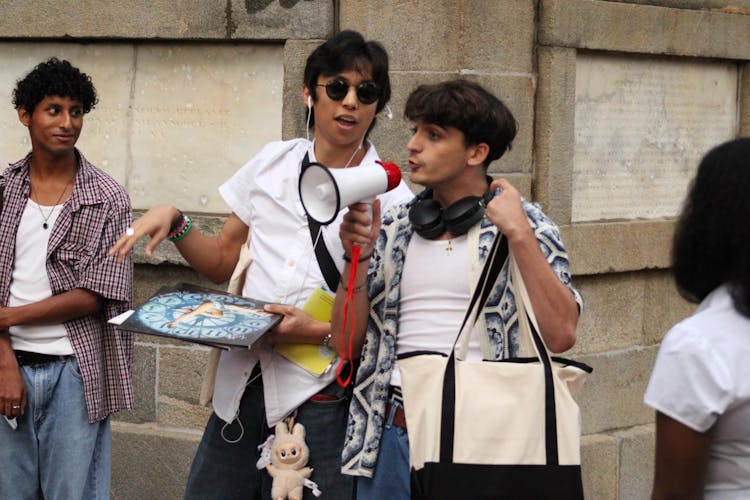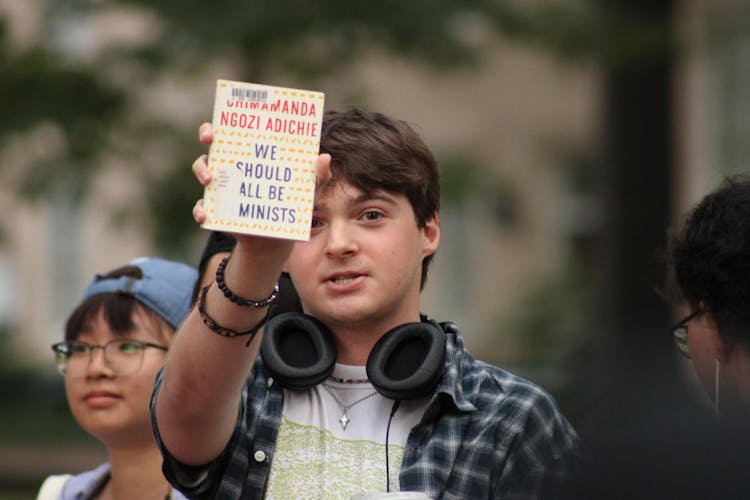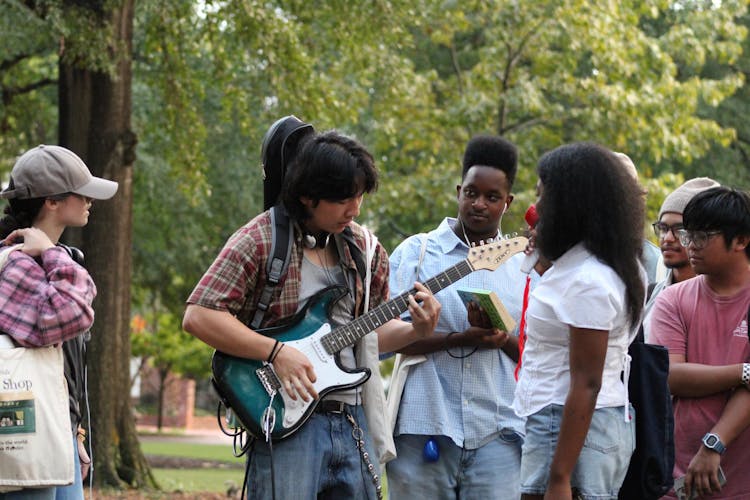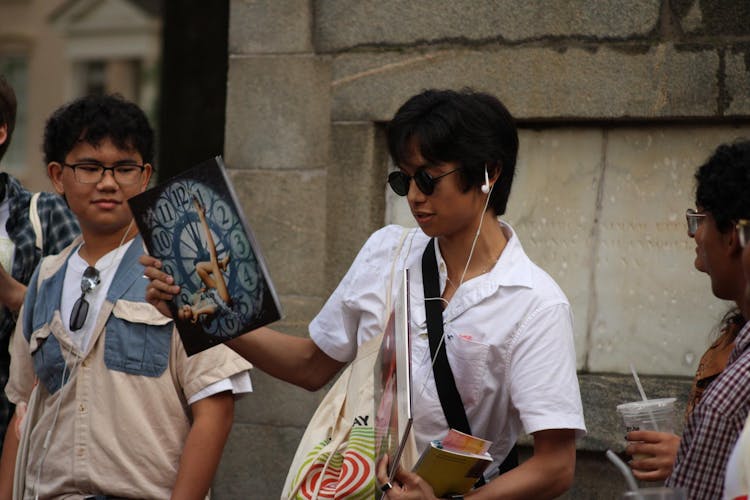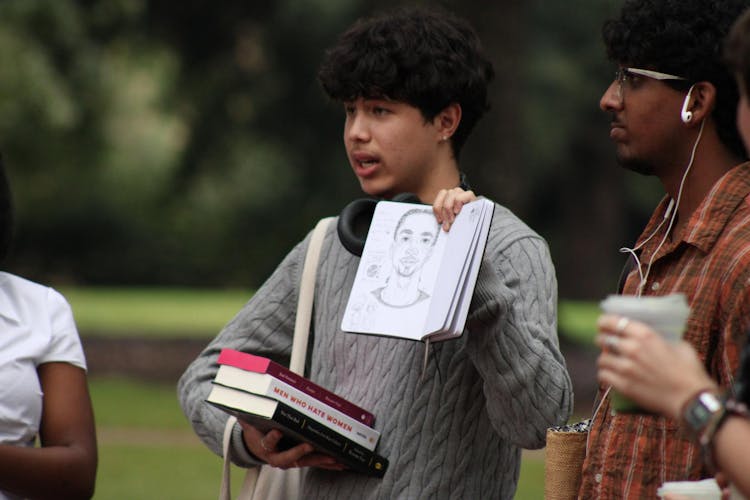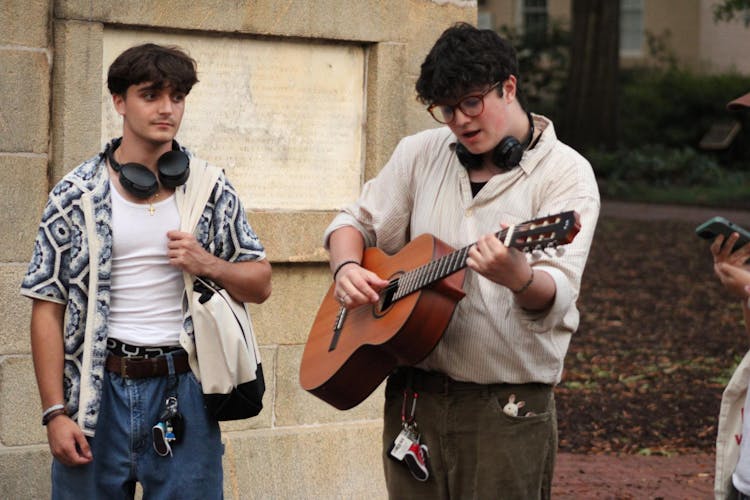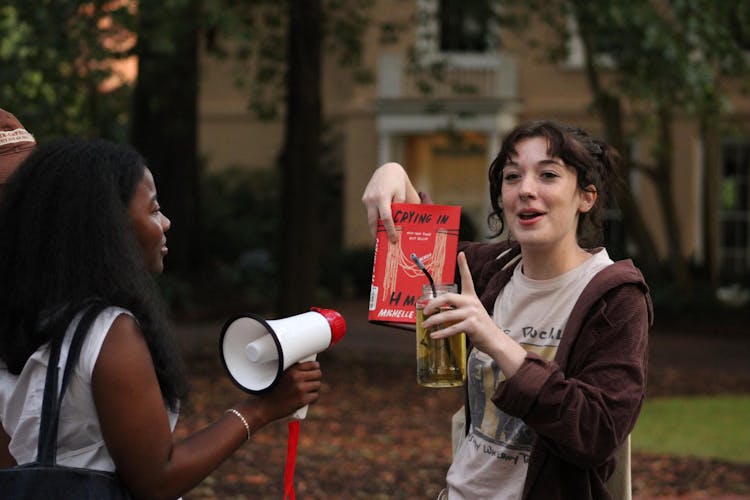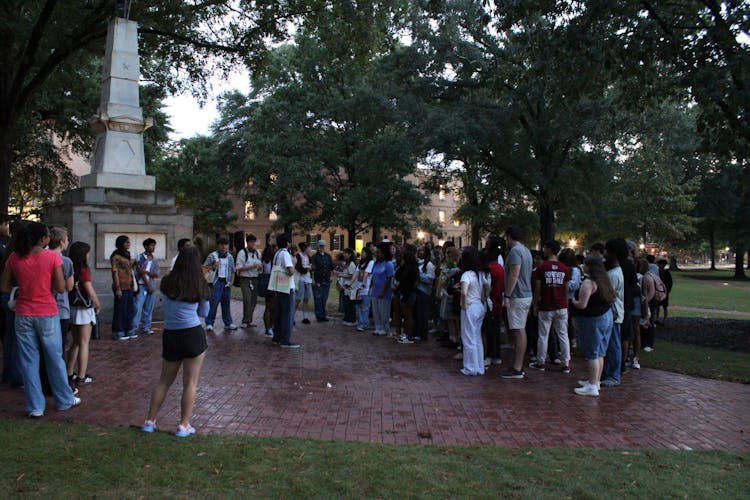On the evening of Saturday, Sept. 20, the Horseshoe was filled by people with Labubus, tote bags, feminist literature and vinyl records. They were there for USC's very own performative male contest, which brought together a large crowd and 22 contestants hoping to win over the audience.
Characterized by their love of matcha beverages, the music of Clairo and flannel, the idea of a performative man has become well-known. Performative male contests have been popping up on campuses all over the country, from as far as UC Berkeley to the University of Alabama and UNC.
USC's version was organized and hosted by Morgan Thomas, a third-year supply chain operations and management student, who was inspired by seeing those previous contests on social media.
“Over the summer, I was chronically online,” Thomas said. “(This trend) was a fun way for everyone to connect and express themselves.”
The contest had to be postponed 30 minutes from its original start time of 6 p.m. due to rain. There was no guarantee of strong attendance, but as the new time drew nearer, more and more spectators and contestants arrived, which was gratifying for Thomas.
"I really appreciate how many people showed up," Thomas said. "It felt very welcoming but also fun, like building a community on campus.
Trying their best to align with the ideal image of a performative male, contestants claimed to study fields such as women’s and gender studies, feminism and environmentalism. One contestant wasn’t a college student at all, Sam Siceloff, a third-year student at Dreher High School.
First-year biology student Sarah Noonoo heard about the event on Yik Yak and came to support her friend, first-year jazz studies student Santi Balagtas. She said it was hard to make a prediction based on the strong line-up.
“I have no idea,” Noonoo said. “Everybody’s doing a really good job, so I don’t know who’s gonna win.”
First-year art studio student Stella Drill isn't male, but felt compelled to compete anyway.
“I’m a performative man at heart,” Drill said. “I may be a woman. I won’t let my sex stop me at achieving what God has given to me.”
Some competitors, like first-year international business student Ryan Kapoor, learned about the event only 30 minutes before it started. Second-year vocal performance student Peyton Kakouras said he found it hard to tell how much other contestants had to prepare.
“I can’t tell if some people actually are trying, or they dress like this every day,” Kakouras said.
Contestant introductions had their highs and lows, from Kakouras and Balagtas breaking out into "Fly Me to the Moon” and inviting the crowd to sing along to Siceloff briefly drawing boos when he referred to “Wuthering Heights” as “Withering Heights”. He then recovered with a guitar performance.
Second-year art studio and psychology student Karina Jarrin said contestants fit the bill from the very beginning.
“That first guy was a very good example of a performative male,” Jarrin said, “because he just kept talking.”
After each contestant received a free keychain from Thomas's own tote bag, the first stage of the competition lasted around an hour. Each contestant presented their case, with some even handing out free flowers and other products to boost their chances.
After some final questions from the crowd confirming music taste and feminist literature knowledge, voting began, with the winner being determined by who got the loudest cheers. Though there were many competitors, the audience picked their champion in just a few quick rounds.
Balagtas, equipped with matcha, wired earbuds and a Labubu hooked to his jeans, emerged victorious. Along with those props, his musical talents and putting a spotlight on USC Jazz Girls Day, his professed love and respect for the many women made him stand out.

“It feels great,” Balagtas said. “But really, all the real winners are all the women here.”
First-year chemistry student Alexis Walters, who coached Balagtas and lead his support team, consisting of several women such as Noonoo along with a non-binary member, said her longtime friend’s words were far from merely performative.
“He’s always been very respectful towards women,” Walters said. “I think having that authenticity really helped.”
Walters said the event was a strong example of students coming together.
"The USC community is great. I've seen a lot of people who wouldn't normally come together come together at this competition," Walters said. "Even though it was delayed, everyone still showed up, everybody had a good time."
Though he didn’t win, Kakouras said he still had a great time and hoped the event would help people feel comfortable being themselves, regardless of labels others may apply.
“It’ll show people to be more confident,” Kakouras said. “Express who we are on the outside.”

